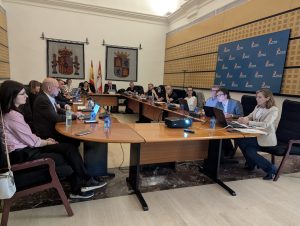The EU’s strategy for sustainable growth, Europe 2020, puts innovation and green growth at the heart of its blueprint for competitiveness. Indeed, it has set clear objectives in terms of energy sustainability, the 20-20-20 targets1. Moreover, according to the EU Directive 2010/31/EU on the Energy Performance Buildings, all new buildings by the year 2020 will have to be nearly zero energy buildings2. This leads to a whole new demand for environmental skills in the construction sector.
Following the involvement of ECTE in the funded project GSSkills, from the “Employment, Social Affairs and Inclusion” programme, in which the skills gap for electricians and plumbers for geothermal and solar installations was clearly demonstrated and the needed skills were defined, ECTE has developed a Sector Skills Alliance (Lot 2), in order to capitalise on these previous findings in terms of skills needs and create a European offer of adapted and innovative continuous training. Related to previously identified skills needs, the project aims at:
- on one hand designing, for Geothermal energy system installers, and for Solar energy system installers, two European core curricula (EQF level 4-5), divided in sets of learning outcomes, allowing an easy implementation of the ECVET procedure; two corresponding VET programmes, including innovative teaching methods, and including periods of work-based learning; two qualification standards for evaluation and certification based on the ISO 17024 and the ECVET recommendations,
- and on the other hand at implementing, delivering, evaluating and certifying the above-described training.
The project consortium is composed of 15 partners from four countries, led by the Technical Educational Institute of Crete, each country including at least one VET provider and one sectoral organisation. This complementarity will ensure a strong collaboration between the labour market (sectoral organisations) and the education and training institutions. The role of the sectoral organisations will be of ensuring that the developed training is in total adequacy with the employers’ needs and supporting the implementation of the training for workers. The role of the VET providers will be to develop an adapted, attractive and innovative continuous VET programme, and to implement it for 200 adults in 4 countries. The EU umbrella organisation will promote the training in the other EU countries.
The programme will start in December 2016, has a three-year duration and is funded by the European Commission.


